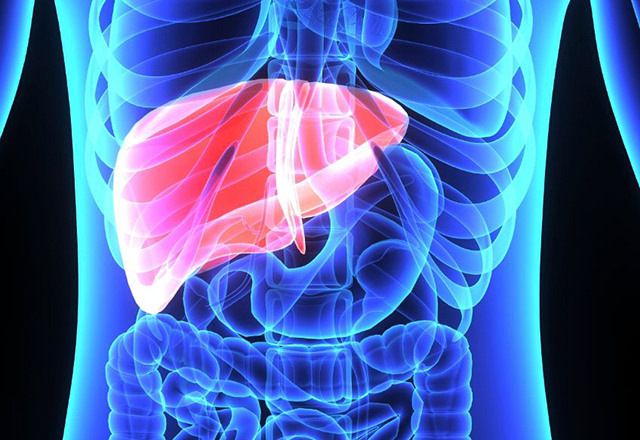— Working with family members is one way to bolster quality of care
FDA proposes rule to allow salt substitutes in standardized foods
The FDA has proposed a rule that would allow the use of “safe and suitable salt substitutes” in standardized foods, providing manufacturers with greater flexibility for reducing sodium content.
According to the agency, standardized foods are those with “standards of identity” (SOI), which list the required and optional ingredients of certain foods. SOIs may also describe the proportion of ingredients and “prescribe a method of production or formulation,” according to the FDA. Read more in Healio.
Double Lung Transplants May Be Rare, but They Just Saved Two Lives
Both recipients had Stage IV lung cancer and were given only weeks to live. Here’s why double lung transplants are so uncommon.
By Laura Schmidt
The stars aligned for two people with Stage IV lung cancer who received lifesaving double lung transplants after being told they had just weeks to live, CNN reports.
Albert Khoury, 54, of Chicago, was diagnosed with Stage I lung cancer in 2020 near the start of the COVID-19 pandemic. By July 2020, the cancer had reached Stage IV. He was told to consider all his options, including hospice care. Read more from Cancer Health.
Friends shorten kidney patients’ long waits for transplants to mere months by donating organs
Good news story: Two organ transplant patients reveal how others stepped up for them
By Amy McGorry
As many as nine in 10 adults with chronic kidney disease do not know they have it, according to the Centers for Disease Control and Prevention (CDC). That’s an important fact to know during March — National Kidney Month — and all throughout the year.
By the time kidney disease is detected, it is usually in the advanced stages — which means a patient may need dialysis several times a week. Read and watch the story on Fox News.
Women more likely than men to have mood disorder, PTSD after cardiac arrest
By Erik Swain
Among cardiac arrest survivors, women were more likely to report anxiety, depressive symptoms and PTSD than men, researchers reported at the European Society of Cardiology’s Acute Cardiovascular Care congress.
“Cardiac arrest occurs with little or no warning and it’s common to feel anxious and low afterwards,” Jesper Kjaergaard, MD, PhD, DMSc, consultant cardiologist at Rigshospitalet, Copenhagen University Hospital, Denmark, said in a press release. Read more in Healio.
Walking 8,000 steps a couple days per week lowers mortality risk
By Andrew Rhoades
Walking the recommended daily step count even a couple days per week was associated with a significantly lower risk for all-cause and cardiovascular mortality over 10 years, according to a study published in JAMA Network Open.
“In modern society, lack of time is one of the major barriers to exercise,” Kosuke Inoue, MD, PhD, an assistant professor at Kyoto University in Japan, and colleagues wrote. Read the full story in Healio.
Smaller Liver Transplant Candidates Wait Longer, Less Likely to Receive Organ
— Disparity mostly affects women, but allocating more livers from smaller donors may help
By Sophie Putka
Liver transplant waitlist candidates who are smaller in size are significantly less likely than larger candidates to receive a liver transplant, contributing to a sex disparity in organ transplants, according to a retrospective study.
After candidates were categorized into six groups according to body surface area (BSA) from smallest (group 1) to largest (group 6), it was found that with each increase in group number, waitlist time decreased (234 days for group 1 vs 179 days for group 6, P<0.001), reported Catherine E. Kling, MD, MPH, of the University of Washington in Seattle, and colleagues.
Read the full story in MedPage Today.
Johns Hopkins Medicine surgeons to receive $21.4 million to advance xenotransplantation research
As part of the worldwide effort to facilitate a research and clinical pathway toward successful xenotransplantation -; the transplantation of living cells, tissues and organs from one species to another -; two Johns Hopkins Medicine surgeons, Kazuhiko Yamada, M.D., Ph.D., and Andrew Cameron, M.D., Ph.D., will receive a total of $21.4 million in funding over the next two years under two sponsored research agreements with biotechnology company United Therapeutics Corporation. The company focuses on developing novel pharmaceutical therapies and technologies that expand the availability of transplantable organs. Read more from News Medical Life Sciences.
HRSA Plans to Modernize US Organ Transplant Donation System to Shorten Wait Times, Improve Equity
Citing the need to modernize the US organ transplantation framework, the Department of Health and Human Services Health Resources and Services Administration (HRSA) has announced the Organ Procurement and Transplantation Network (OPTN) Modernization Initiative. The OPTN aims to accelerate progress in areas including technology, data transparency and analytics, governance, operations, and quality improvement and innovation. Read more in this American College of Surgeons (ACS) Brief.
New liver transplant rules yield winners, losers as wasted organs reach record high
The number of lifesaving liver transplants has plummeted in some Southern and Midwestern states that struggle with higher death rates from liver disease
By Malena Carollo and Ben Tanen
New rules requiring donated livers to be offered for transplant hundreds of miles away have benefited patients in New York, California and more than a dozen other states at the expense of patients in mostly poorer states with higher death rates from liver disease, a data analysis by The Washington Post and the Markup has found.
The shift was implemented in 2020 to prioritize the sickest patients on waitlists no matter where they live. Read the full story in The Washington Post.









